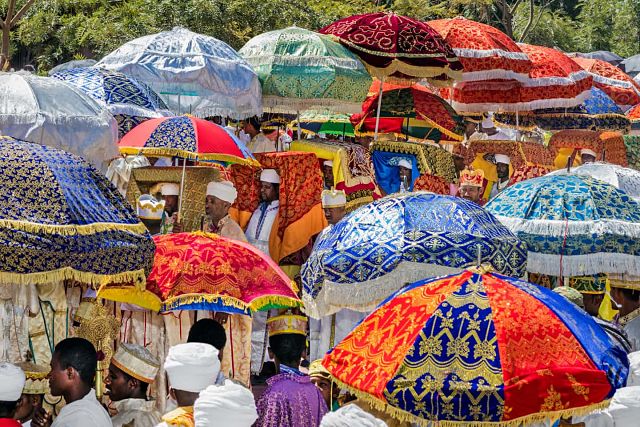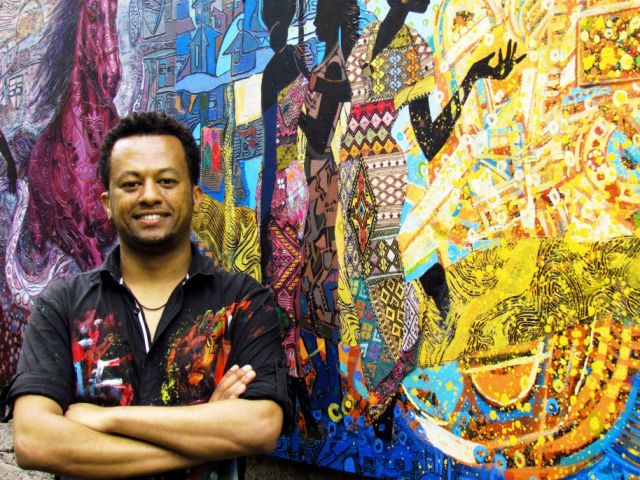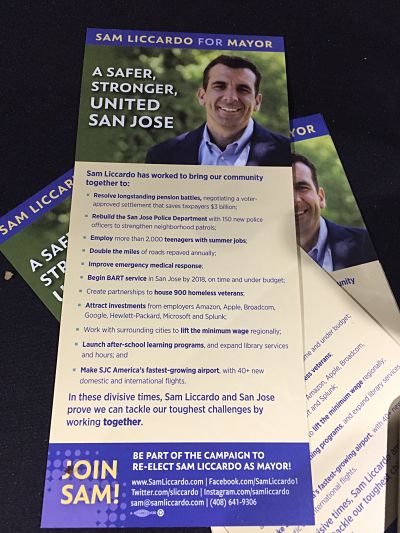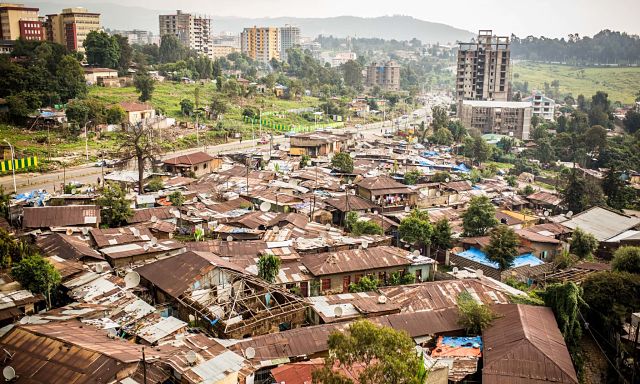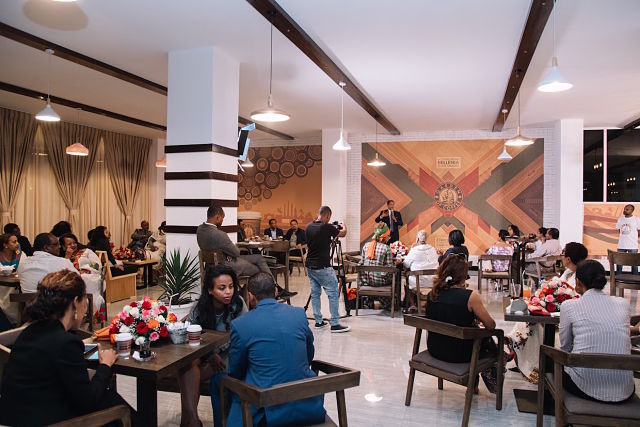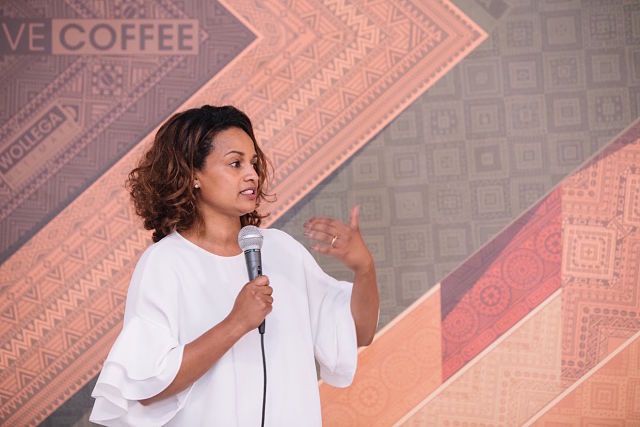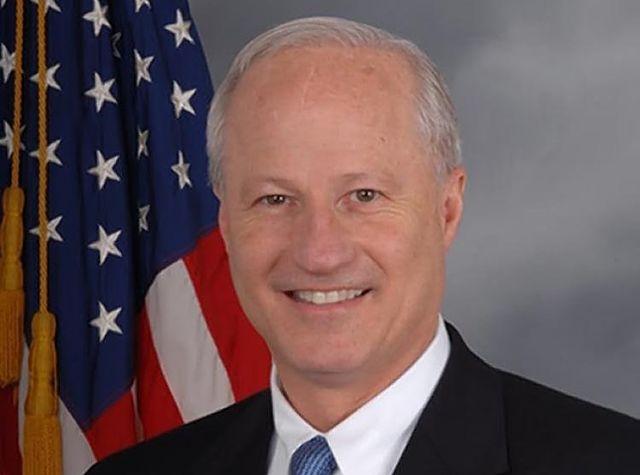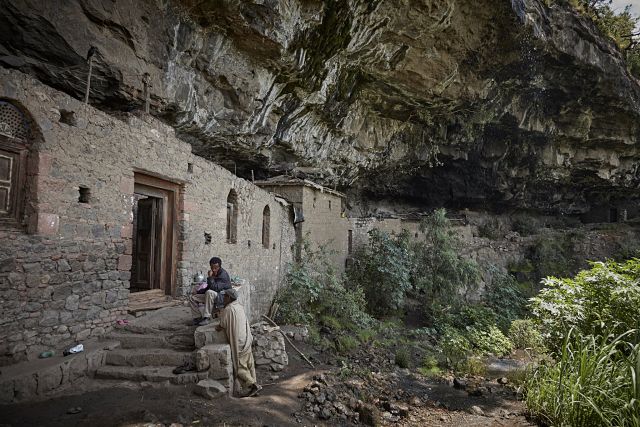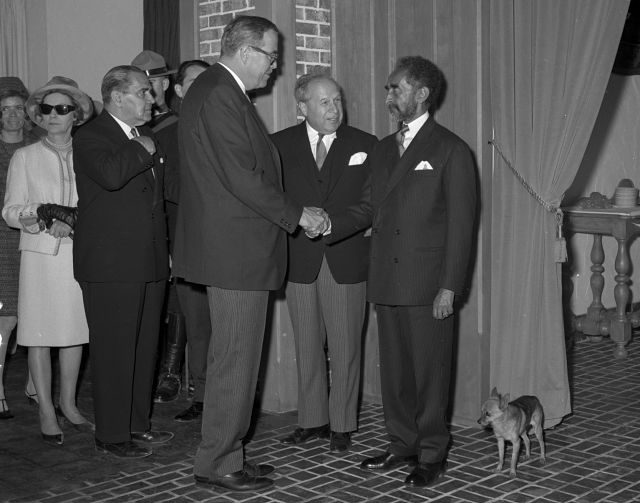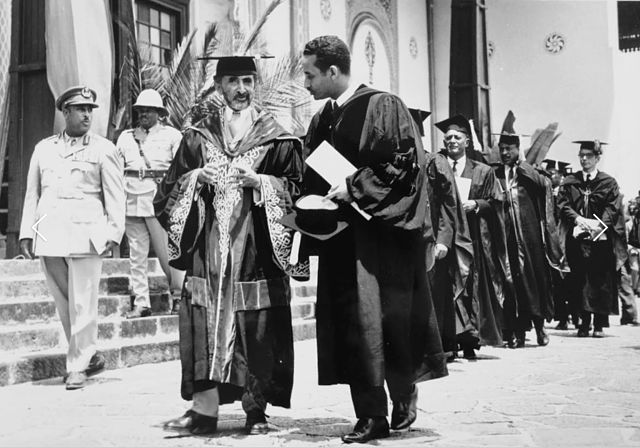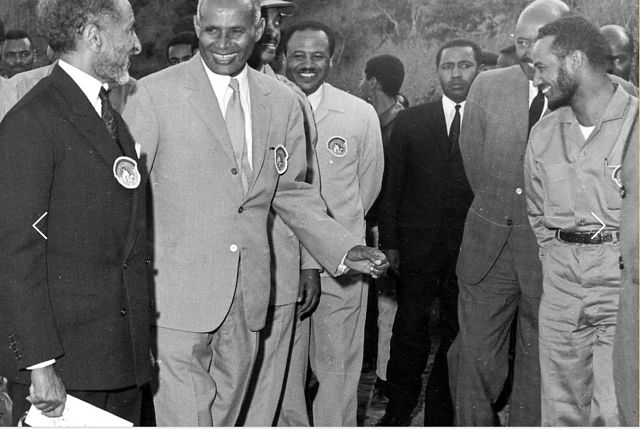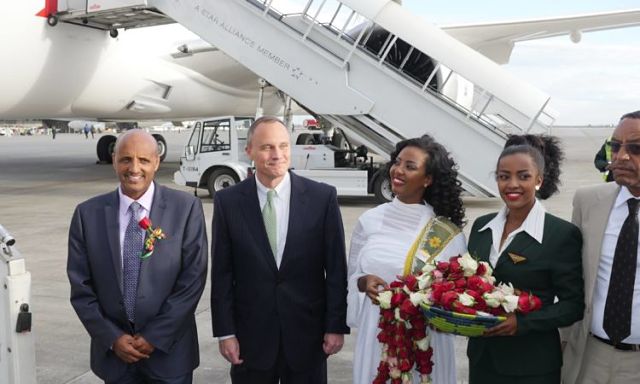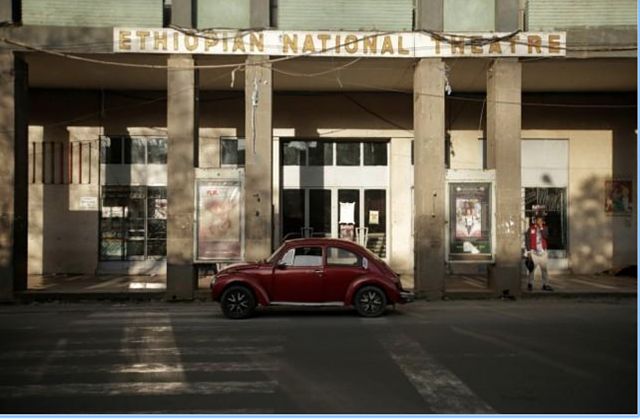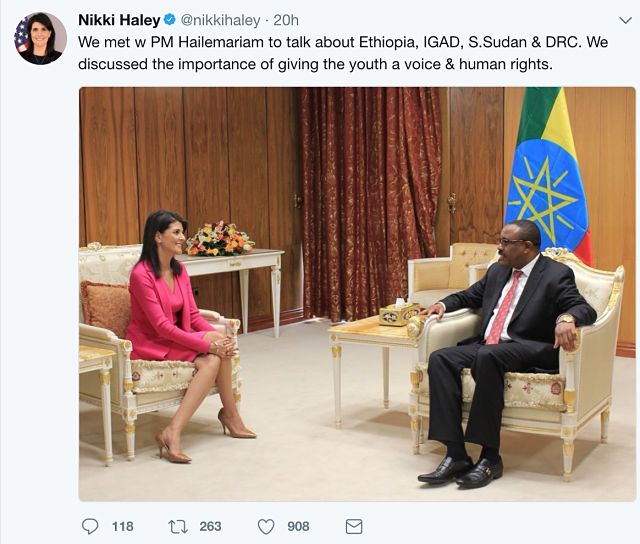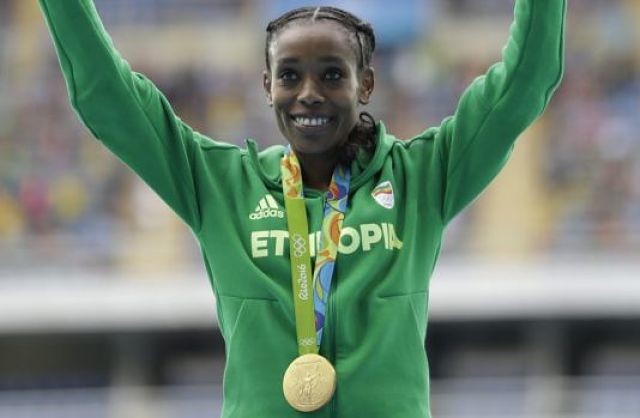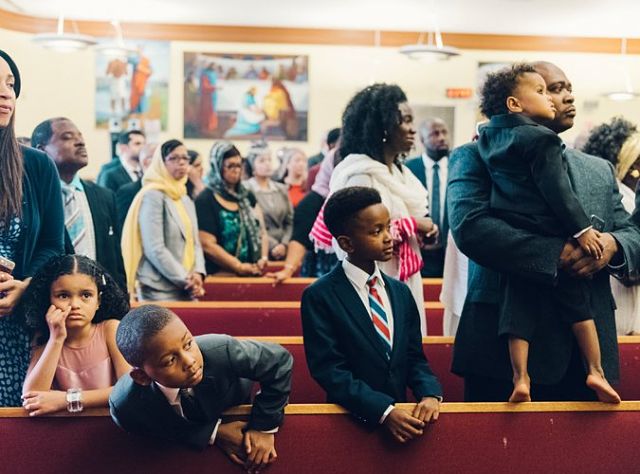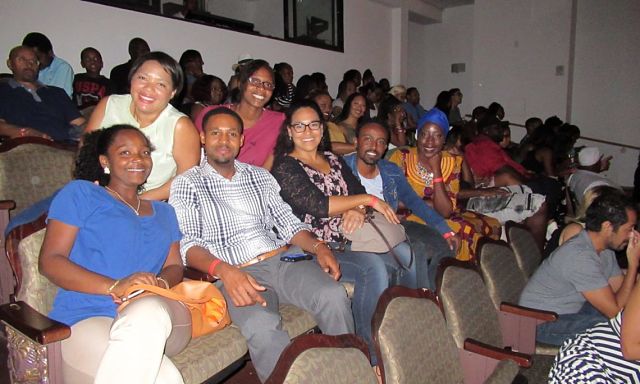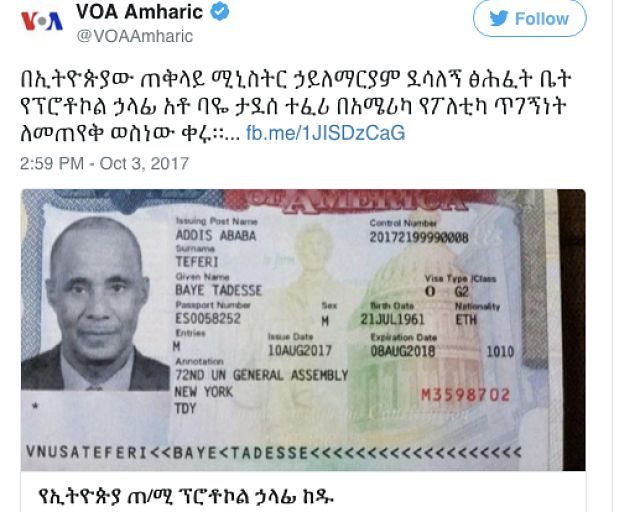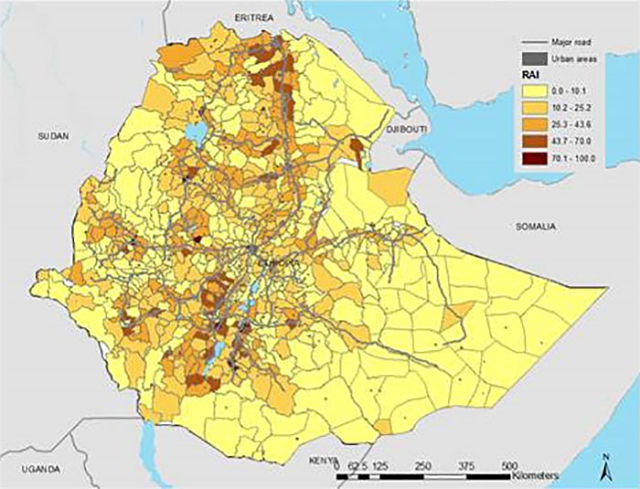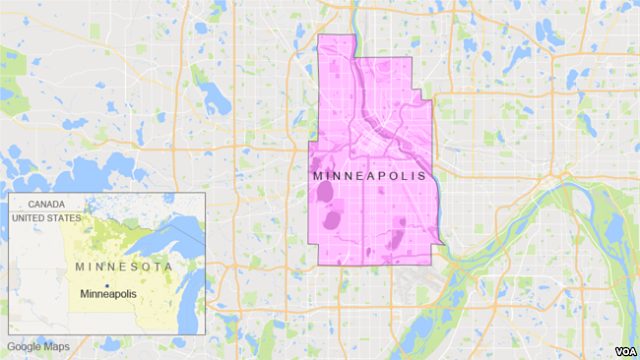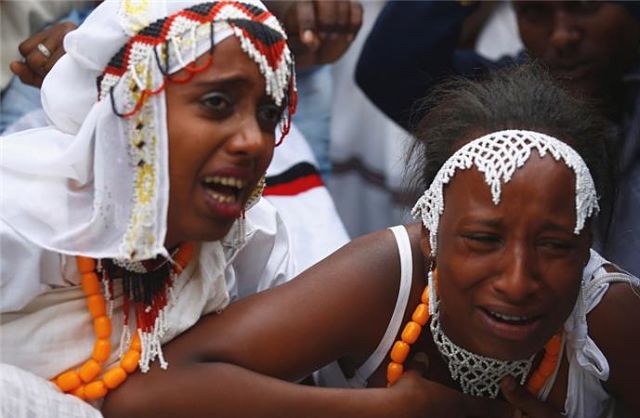Tadias Magazine
Op-Ed
By Dr. Fikre Germa

Updated: December 15th, 2017
Ontario, Canada (TADIAS) — In 1988, I arrived in Vancouver anxious to find a way to continue my medical studies and establish myself as a physician. I had little social support and even less money but a hunger for connections with Ethiopia, my home country. And I made them. I found injera. I met other Ethiopians. But I never expected that one of my strongest connections would be a retired Canadian, a former teacher, missionary, and politician.
Most Canadians who recognize Dr. Robert (Bob) Thompson’s name likely recall him as a politician and former leader of the Social Credit. Few know that between 1944 and 1958 he helped Ethiopia rebuild, or that he later befriended and mentored young Ethiopian immigrants in British Columbia.
I first met Thompson at an Ethiopian community event in Vancouver in the late 1980s, where he stood out as the only foreigner in the midst of many Ethiopians. I introduced myself and received an invitation to his home where he was going to host another Ethiopian mixer.
As our relationship evolved over the years he became a mentor and grandfather figure to me. I admired him for having learned to speak and write Amharic and for his enduring love for Ethiopia and its people and potential. Like many others in the Ethiopian Diaspora at the time, I found it difficult to identify confidently with the Ethiopian culture because our family had fled a country in turmoil after a Marxist coup in 1974. From Thompson, I gained a deeper appreciation of my homeland’s contribution to language, literature, faith, and culture. I also absorbed Thompson’s respectful and sustainable model for developing Ethiopia’s potential, one I would try to apply in my own work for Ethiopia.
Thompson, who was born in the United States to Canadian parents and raised in Alberta, had been a teacher and a chiropractor before World War II. Between 1941 and 1943, he served as an instructor in the Royal Canadian Air Force. During his service, he became friends with a chaplain who had known Emperor Haile Selassie while he lived in exile in Great Britain during the 1936 Fascist occupation of Ethiopia. The chaplain recommended Thompson to the emperor as someone who could help Ethiopia rebuild.
In 1944, Thompson, his wife, Hazel, also a chiropractor, and their children went to Ethiopia, where he worked with the government and the Sudan Interior Mission (now Serving in Mission).
I was elated to learn that Thompson had lived in Ethiopia and served under Haile Selassie for a number of years. Thompson was seconded to the Ethiopian Ministry of Education. One of his first assignments was to organize the curriculum and supervise the teachers at Ethiopia’s first high school, the newly opened Haile Selassie Secondary School. Later he became its head master. Emperor Haile Selassie I, himself the Minister of Education, appointed Thompson first as the Superintendent of Schools of Kaffa Province and later as Deputy Minister of Education. The nation’s public school system needed rebuilding because the occupiers had destroyed educational structures and not allowed many Ethiopian children to go to school.
Thompson’s mandate was to establish schools in the capital city of each of the twelve provinces and in all of the main provincial towns. Thompson flew to Britain, India, Canada, and the United States, recruiting teachers for Ethiopia. In twelve months, twenty-six schools were opened. Within five years, the Ethiopian school population grew from zero to almost ten thousand. He used to say that it is the teachers who loved Ethiopia that were very effective as opposed to those who had a lot of degrees — he was very attentive to culture and human relationship.
The Emperor, a devout Christian and head of the Office of the Ethiopian Coptic Church, quickly felt a bond with Thompson and gave him freedom to tackle the tasks that Thompson felt were a priority. Thompson became an intimate friend of the Emperor, whom he respected, and a confidante and mentor to the royal family, who referred to him as Fikurab, a term of respect and endearment.
One project that greatly pleased the Emperor was Thompson’s proposal to build a leprosarium for the Arise people in the Rift Valley in Shashamane, one of the most under developed areas of Ethiopia. The Arise were semi-Nomadic and fiercely independent; leprosy had brought them much sorrow. The Ethiopian government agreed to supply the land for this leprosarium and Sudan Interior Mission supplied the staff and supplies. Herein, Thompson was able to integrate his philosophy of having government agencies work together with non-governmental agencies to achieve a common goal. This was his belief based on the growing understanding that in many situations the private sector can do things cheaper and more efficiently than a bureaucratic government.
Years later, in his book entitled From the Marketplace, Thompson wrote, “The expertise of such agency personnel is rarely obtainable through normal channels of government recruitment. It has been estimated that a dollar spent in this way and down to earth, close to people project is worth at least $4 of government onset aid.” Through these experiences, Thompson grew in his understanding of human nature and the most diplomatic ways to accomplish political ends.
Thompson also wanted to help the Arise become self-supporting by teaching them to farm. When my father, Germa Amare, and I visited Thompson and his second wife, Evelyn, in 1996, we learned about the egg project. On one trip to Alberta he purchased twenty eggs of certified Rhode Island Reds and carried them in a basket for more 24 hours in his flight back to Addis Ababa. At the leprosarium, he gave four eggs to five families from the hospital and village. They were not to eat the eggs but to use them for breeding. All twenty eggs hatched and by the end of the year there were over a hundred chickens. Within a few years, there were millions of Rhode Island Red chickens throughout southern Ethiopia. The Emperor was pleased and joined the lepers in nicknaming Thompson, Abbadoro, Father of the Chickens. The egg project illustrates what that he always said — that the first principle of development aid is that must be practical.
On his return from Ethiopia in the 1950s, Thompson adapted his experience in education and government to service in Canada. He first earned a master’s degree in Educational Studies. He had supported the Social Credit Party of Alberta in his youth, and in 1958, he became active again. In 1961, he became leader of the Social Credit Party of Canada; under his leadership, and that of deputy leader Réal Caouette, the Social Credit won thirty seats in the 1962 election, and played a role in the balance of power during that minority government and those of 1963 and 1965. In 1967, Robert Thompson became a Progressive Conservative. He served as a Member of Parliament for Red Deer, Alberta from 1962 to 1972, serving on many standing committees including that for external affairs.
After his retirement from politics, Thompson taught political science at Trinity Western College in British Columbia and worked in its administration. And he continued to serve Canada and Ethiopia through diplomacy. When Emperor Haile Selassie visited Canada in 1963 and in 1967, our centennial year, Lester Pearson, the prime minister asked Thompson to act as the Emperor’s aide-de-camp, meeting the Emperor in New York, before escorting him to Ottawa. Robert Thompson said that the Emperor’s visit allowed him to renew friendship with members of the Ethiopian party who had been personal friends in Ethiopia. One was the Ethiopian foreign minister Ketema Yifru, who had been one of his students in Addis Ababa.
The 1967 visit proved quite memorable. Thompson met the Emperor on April 30, in Vancouver and was in attendance at a dinner. The Emperor was seated with the newly appointed Governor-General, Roland Michener, Prime Minister Pearson and John Diefenbaker, Ketema Yifru, the Ethiopian Foreign Minister and Manassie Haile, the Ethiopian Minister of the Pen, equivalent to the Canadian Secretary of State. Robert Thompson had also taught him in high school.
Thompson, who was seated across from the Emperor, recalled the Emperor pointing at the miniature medals on my dinner jacket. Thompson recounted:
He then sent Menassie Haile to ask why I was not wearing my Ethiopian decorations. I replied simply that I didn’t have any. When Menassie Haile relayed my answer, the Emperor shook his head and frowned. He later called his Foreign Minister, Ketema Yifru, who carried the message to me, “This is no time for making jokes. Where are your Ethiopian medals?” I again replied, “Truly, my Emperor, you have not given me any. After dinner, Menassie Haile came to me stating that the Emperor was very embarrassed and wanted to invest me immediately with the proper decorations. Ketema Yifru had already been sent to bring the appropriate medals from the Emperor’s quarters. I explained that this could not be done because Canadians were not allowed to receive decorations from foreign nationals. This rule has been broken frequently, but never without the consent of the government. After an impromptu conference, Mike Pearson and Paul Martin related their problem to me. They wanted to accommodate the Emperor and suggested a compromise. The new Canadian award, the Order of Canada, was to be officially inaugurated on July 1, 1967, so I could accept the decoration as long as I did not publicize the matter until after the first of July, when the reciprocal awards would be possible and formally correct. Later that evening, the Emperor invested me with the Order of Ethiopian Star, and made it seem as though I was doing him a favour in receiving it.”
Eventually, Thompson’s contributions to Canada were recognized with the Order of Canada.
As I have said, Thompson’s views on international development influenced me; they shaped my own volunteer work in global health in Ethiopia and elsewhere. Drawing on his own experience in a one-room school in Alberta, he believed in practical education. He remembered the degree of motivation that came from having to use the resources and materials were at hand. He thought practical education was needed for adults as well as youth. He said the mature students contributed with life experiences.
He was cautious about the use of technology, saying said that all too often sophisticated Western technologies had little to offer the villages of Ethiopia. Aid experts are slowly coming to realize that a village’s needs cannot be satisfied by the advanced Western technology or the cast-offs of Western industry. Thompson also acknowledged that aid must also share of the values of freedom.
Of all things that really touched me was Dr. Thompson’s view that world peace could only come through following the highest law, the law of love and self-giving. In his political memoir, A House of Minorities 1957-72, he wrote:
It will come from true charity between nations, not simply the giving of material aid but the personal sacrifice necessary to understand and help with the problems of others. Satisfactory progress for any nation or people comes not from technical training but from God-endowed wisdom. This wisdom respects the human being as a divinely created creature whose very nature demands freedom. Progress to this end is a matter of education and training.
He also said, “I believe it’s our responsibility as a people, as a nation, to help others less fortunate than ourselves attain such wisdom aside from direct political and economic involvement.”
Dr. Robert Thompson died at age 83 on November 16, 1997, in Langley, the site of Trinity Western University. Today, you can find a Canadian-Ethiopian treasure, at the university, the archives of Dr. Robert N. Thompson (1914–1997).
When my father and I have visited his archives, we were deeply touched by the resources available on him and on Ethiopia, and by the Ethiopian flag squarely sitting comfortably in the archives.
Robert Thompson also inspired my present focus on supporting cultural wellness through community engagement and supporting the development of an Ethiopian language program and an Ethiopian Studies program at the University of Toronto.
For me, cultural wellness is as important as physical wellness and plays a significant role in global health. We are here because of our interest in Ethiopia, in higher education, and our communities.
Like Robert Thompson, let’s each continue to strengthen bonds between Canada and Ethiopia and contribute well to the education and well-being of our youth and communities.
—
Related:
Ethiopia: Retracing Haile Selassie’s State Visit to Canada 50 Years Ago
Join the conversation on Twitter and Facebook.
